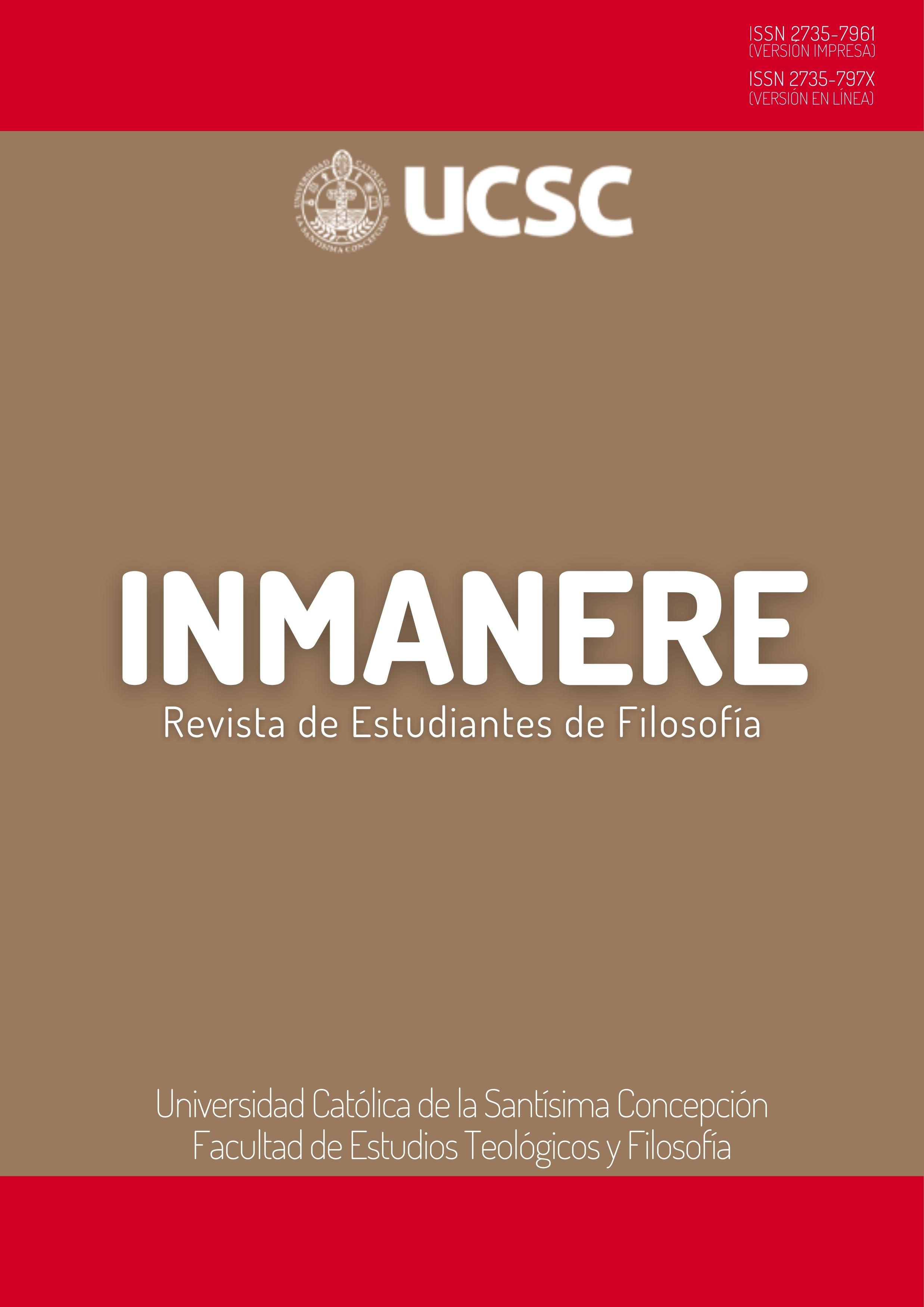The ethics of the other in Levinas as a means for the development of political thought
Main Article Content
Abstract
This article explores Emmanuel Levinas's political thought through his ethics of the face and its relation to the concept of alienation developed by Guy Debord. It analyzes how alienation, rather than being merely a state of loss, becomes a means of ethical self-discovery and openness toward the other. From this perspective, a connection is established between Levinas's ethics and Debord's critique of capitalism and dehumanization, integrating the shared historical context of both authors. The study concludes that Levinas's ethics is not only an individual response but also a proposal for social and political transformation grounded in alterity. This work offers a novel perspective by linking these authors around responsibility and social justice.
Article Details
Section

This work is licensed under a Creative Commons Attribution-NonCommercial 4.0 International License.
The work is licensed under a Creative Commons Attribution 4.0 International License. This license allows sharing and adaptation of the material in any medium or format, even for commercial purposes. Proper attribution must be given, including a link to the license and indicating any changes made to the material. No additional restrictions may be applied that legally limit others from exercising the permissions granted by the license.
How to Cite
References
Carballada, L. de. (1996). Emmanuel Levinas in memoriam: La biografía de un testigo. Estudios Filosóficos, 45(128), 185–199. Recuperado de https://estudiosfilosoficos.dominicos.org/ojs/article/view/529 (Obra original publicada el 30 de enero de 2021).
Castro Serrano, B. (2014). El Lévinas político según Abensour. Revista de Filosofía, 70, 45–60. https://doi.org/10.4067/S0718-43602014000100003 DOI: https://doi.org/10.4067/S0718-43602014000100003
Celli, M. E. (2022). Dios en la propuesta de Jean-Luc Marion: Del giro teológico al giro levinasiano. Anales de Teología, 24(2), 185–193. https://doi.org/10.21703/2735-6345020220420204 DOI: https://doi.org/10.21703/2735-6345020220420204
Debord, G. (2002). La sociedad del espectáculo. Pre-Textos.
Levinas, E. (2000). La huella del otro. Taurus.
Levinas, E. (2002a). Algunas reflexiones sobre la filosofía del hitlerismo. Fondo de Cultura Económica.
Levinas, E. (2002b). Totalidad e infinito. Ediciones Sígueme.
Novoa, F., & Alarcón, A. (2024). Bien común y hospitalidad: Una lectura desde el pensamiento de Jean-Luc Marion. Anales de Teología, 26(2), 76–91. https://doi.org/10.21703/2735-634520242622975 DOI: https://doi.org/10.21703/2735-634520242622975
Paredes, A. (2024). La coincidencia de lo dado con el modo de darse: El acontecimiento más allá de la metafísica en Jean-Luc Marion. Revista de Filosofía UCSC, 23(2), 472–501. https://doi.org/10.21703/2735-6353.2024.23.2.2902 DOI: https://doi.org/10.21703/2735-6353.2024.23.2.2902
Roggero, J. (2024). La metafísica como transgresión: La impronta levinasiana en la fenomenología de Jean-Luc Marion. Revista de Filosofía UCSC, 23(2), 367–. https://doi.org/10.21703/2735-6353.2024.23.2.2895 DOI: https://doi.org/10.21703/2735-6353.2024.23.2.2895
Santasilia, S. (2024). La saturación icónica: La fenomenología de la religión como crítica a la metafísica. Revista de Filosofía UCSC, 23(2), 352–. https://doi.org/10.21703/2735-6353.2024.23.2.2901 DOI: https://doi.org/10.21703/2735-6353.2024.23.2.2901
Viola, J. P., & Velarde, C. (2023). La pandemia como ocasión de crecimiento personal y oportunidad para otro concepto de calidad educativa. Revista de Filosofía UCSC, 22(1), 133–150. https://doi.org/10.21703/2735-6353.2023.22.01.07 DOI: https://doi.org/10.21703/2735-6353.2023.22.01.07
Yáñez, M. (2024). Habitar el tiempo: Breves consideraciones sobre el cuidado de la casa común. Anales de Teología, 26(2), 27–43. https://doi.org/10.21703/2735-634520242622769 DOI: https://doi.org/10.21703/2735-634520242622769




